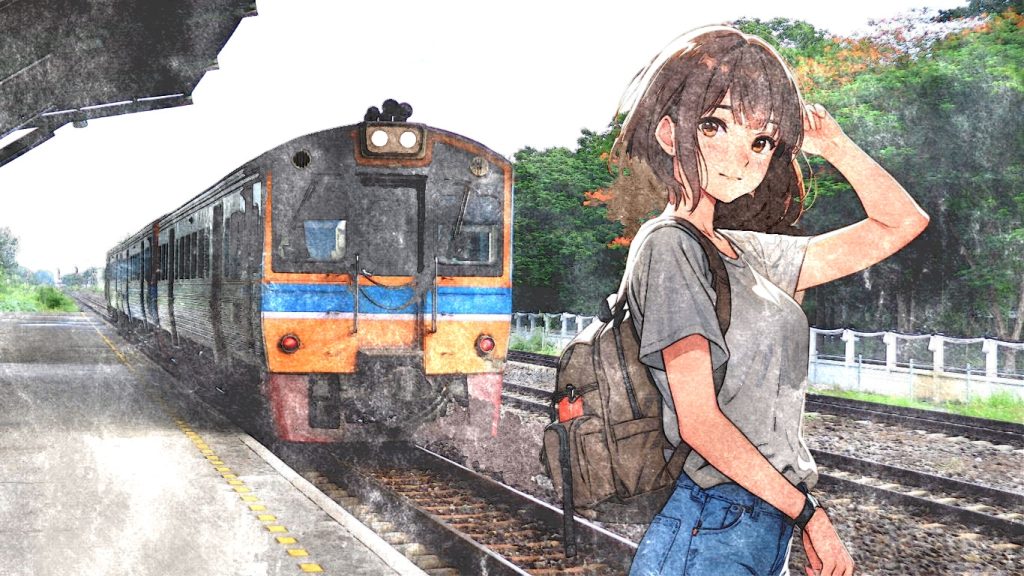
I didn’t come to Ayutthaya looking for doors.
I came because the train ticket was cheap, the city was old, and I liked the way the mist wrapped around the rooftops in the photos I’d seen online. It was supposed to be a quiet trip. A place to walk slowly. Think less. Maybe forget something I hadn’t named.
But instead, I found the door.
Not a real one, not at first. Just a suggestion — the way fog curled around a broken fence. The way the air turned still, even though my hair still moved. And the way that orange cat I’d seen all week — always too quick to follow — stopped this time.
Lilly was sitting at the edge of the abandoned track, looking not at me, but at something beyond the rusted rails. Her tail swayed, once. Twice. Then stilled.
I almost called to her. But the words felt wrong. So I just stepped forward.
The gravel crunched beneath my sneakers, a little louder than I expected. I thought about turning back. I thought about why I’d come alone. I thought about the soft chime I’d just heard — no temple nearby, no wind. Just a bell.
And a cat who wouldn’t blink.
I followed her past a shrine I don’t remember passing before. Past an old train car, now covered in vines. Until we reached it:
A frame of wood, nearly rotted through, standing upright in the middle of nowhere. It wasn’t attached to anything. Just a doorframe, carved with something that shimmered faintly — not in gold, but in attention.
I looked back. The sky was pale, the trees unchanged, the world exactly as it had always been. Except I knew that if I stepped through, it wouldn’t be.
Lilly turned once, tail brushing the edge of the air. I took a breath. And I stepped.
I still don’t know what changed. But something did.
Maybe it was the silence. Maybe it was the choice. Maybe it was the way some doors don’t lead elsewhere — just inward.
And maybe you’ve stood at one too.
